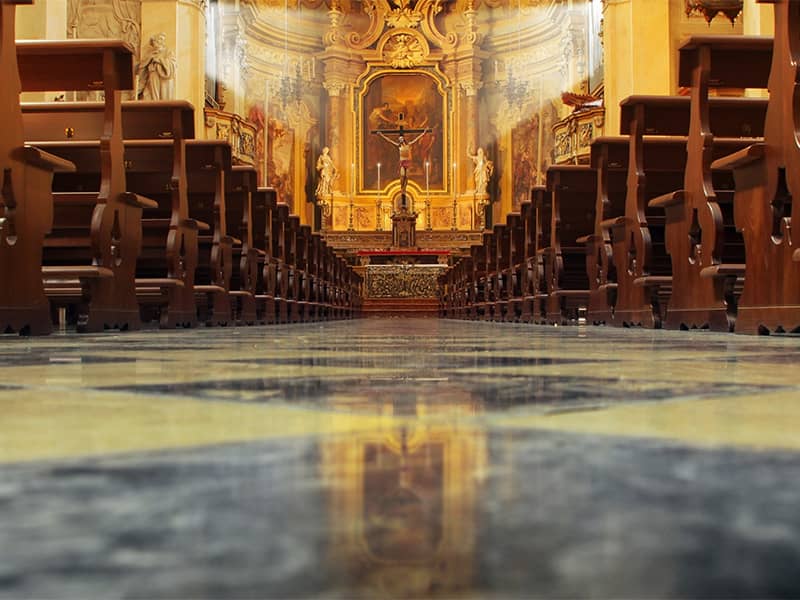NEW YORK, August 3 (AP)--Though the Dalai Lama's exclusion from the upcoming Millennium World Peace Summit at the United Nations brought unwelcome headlines, organizers hope the gathering of 1,000 religious leaders will highlight a new global effort for peace.
"The summit has to be a call to action," says Bawa Jain, secretary-general of the summit and veteran interfaith organizer. "Unless religious leaders commit themselves to action in their communities, religion is not going to have any meaning."
Organizers of the four-day gathering, which begins August 28, say it should result in a permanent council of religious leaders to advise the United Nations on preventing and resolving conflicts.
Still, even as the agenda is being finalized, political-religious strains threaten the peace of the peace summit. Last week, word got out that conference organizers had not invited the Dalai Lama to the first two days of the conference at the United Nations, for fear of offending China.
China would be outraged, a U.N. official advised organizers, if they invited to the United Nations the Tibetan spiritual leader who fled his homeland in 1959 after an abortive uprising against China's occupation.
Instead, organizers invited the Dalai Lama to the last two days of the conference and to give the concluding speech--all scheduled at a New York hotel, away from the United Nations. He declined.
Among those who have said they will attend are Cardinal Francis Arinze, president of the Vatican's Pontifical Council for Interreligious Dialogue; Cambodian Buddhist leader Samdech Preah Maha Ghosananda; the Grand Mufti of Bosnia, Mustafa Ceric; Israel's Chief Rabbi, Meir Lau; the Rev. Jesse Jackson; and numerous indigenous leaders, including Chief Oren Lyons, faithkeeper of the Onondaga Nation in upstate New York.
Many confirmed participants say that given the number of conflicts with strong religious influences--from Sierra Leone to the Balkans--they won't miss a chance to form alliances at the summit.
Much has been written about the religious roots of violence, but until recently little attention has been paid to religious resources for peace, notes Marc Gopin, author of "Between Eden and Armageddon: The Future of World Religions, Violence and Peacemaking."
These resources include conflict-resolution strategies that take into account factions' deeply held theological views, says Gopin.
"An understanding of religious tradition," he says, "can generate solutions that speak to billions of people," such as bringing forward-thinking religious leaders into the highest levels of the Mideast peace talks.
Earlier interreligious conferences, such as last year's Parliament of World Religions in Cape Town, South Africa, focused more on interfaith dialogue. Summit organizers say this meeting will attempt to look at conflict-resolution strategies in key regions and propose initiatives on peace, poverty, and the environment while forging a partnership with the United Nations.
Even loose ties with the world body, Jain says, have been advantageous, helping to attract religious leaders who see it as a neutral setting.
But the U.N. connection also placed the summit into the midst of international political tensions. It was on learning of the Dalai Lama's exclusion that fellow Nobel Peace Prize laureate Desmond Tutu fired off a protest letter to Annan.
"I gather this happened through caving in to pressure from the government of China," Tutu wrote. "If this is so, then it totally undermines the integrity of the United Nations and the credibility of the summit." Some observers question how much progress religious leaders can make during a four-day summit, and just how forthcoming they'll be.
Courageous leaders with large followings "can do great things for peace by making it clear religion cannot be used to legitimate violence," says R. Scott Appleby, director of the Joan B. Kroc Institute for International Peace Studies at the University of Notre Dame.
On the other hand, he says, top leaders may be defensive of their constituencies and refuse to admit their own communities' mistakes.
It's common, he says, for leaders to "talk about how their traditions are for peace [and] denounce those who do violence" in the name of religion, but it's rare for them to acknowledge how their own traditions incite violence.
David Little, Harvard Divinity School professor of religion, ethnicity, and international conflict, and a member of the summit scholars group, says he hopes religious leaders will discuss subjects they often avoid, such as the treatment of minorities who have become the leading victims of human rights abuses and the use of force to restrain violence.
Most important, he wants to see leaders make tough political choices about who might serve on an advisory committee to the United Nations.
While skeptics predict four days of self-congratulatory speeches, Jain said he believes the urgency of the problem will inspire more substantive responses.
"The world's great religious leaders," he asserts, "will together exert moral authority in zones of conflict to seek nonviolent solutions."
Given the level of violence worldwide, he says, "we have no choice."

